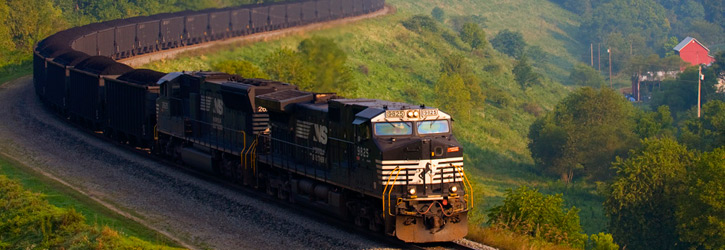
Unit Train Volume Shipments
Shipping by Unit Train enables railroads to be highly competitive with other modes of transportation across greater distances, but requires large-volume customers in order to be viable. RLBA has worked on Unit Train projects on behalf of clients representing every primary sector involved in high volume rail shipments across the country. RLBA provides the expert strategic, financial, and negotiation assistance necessary to optimize their bulk freight service.
Select Project Descriptions:
ELK VALLEY COAL:
The largest rail shipper in Canada engaged RLBA to lead an analysis of strategic options aimed at executing a long term change in its relationship with Canadian Pacific Railway (CP), EVC’s sole rail transportation provider. EVC believed that CP enjoyed undue bargaining power in the relationship and sought a stable and long term improvement. RLBA’s team, comprised of EVC’s outside counsel and other advisors, examined the full spectrum of operating, engineering, economic and regulatory options available to EVC. The team interacted frequently with senior management, made field inspections, analyzed advisory reports and recommendations and evaluated and quantified potential outcomes. RLBA made presentations to EVC’s Board on several occasions to outline all options and ultimately to recommend a strategy. The team’s recommendation was adopted by the EVC Board and subsequently implemented by EVC staff. Long term rate relief was secured.
AMERICAN FARM BUREAU FEDERATION:
RLBA assessed various, key marketplace factors contributing to imports of agricultural commodities into the United States, specifically investigating why imported agricultural commodities can be less costly than those grown in the U.S. Specifically, RLBA examined:
- U.S. transportation laws to determine whether they distort market signals;
- the impact of rail consolidation on the movement of agricultural commodities into the southeastern U.S.;
- the availability and price of rail transport in the movement of oilseeds, protein meal and feedgrains into the Southeast to supply the livestock industry;
- the extent to which this country’s transportation infrastructure provides a competitive advantage to U.S. producers; and
- the sufficiency of, and trends in, intermodal infrastructure investment.
GAINESVILLE REGIONAL UTILITIES:
RLBA assessed alternatives to existing coal movements between Appalachian coal origins and GRU’s generating station in Hague, Florida. Transportation supply alternatives were sought to mitigate the effects of sole-source railroad service to GRU’s plant. RLBA conducted a detailed economic analysis of various coal transportation supply options including the construction of a new rail line along various routes, each of which would connect the plant with an existing line of a railroad competitor, promising substantial savings compared with the existing carrier. GRU saved over $500 million as a result of such efforts.
